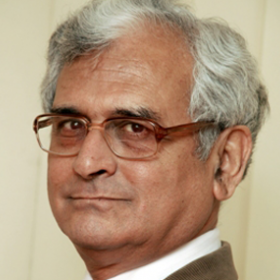
Bajaj Underscores the Need for International Cooperation in Cyberspace
Founder of the Data Security Council of India and EWI Distinguished Fellow Kamlesh Bajaj wrote—in an article for The Wire—on the difficulties behind international cooperation in cyberspace security. Analyzing the cyber playing field following the WannaCry worm outbreak earlier this year, Bajaj remarked that although it is high time that countries agree to limit the cyber arms race, such a restriction might be difficult to unilaterally achieve through conventional first-track diplomatic efforts. Bajaj particularly questioned whether "some specifics [could] be identified and debated by the private tech sector in Track 2 mode, then moved to 1.5 or straightaway to Track 1 for the framing of international norms."
That being said, regardless of the efforts of nongovernmental agencies themselves, he underscored that "[cyber] security has become a shared responsibility between tech companies and customers and the stockpiling of vulnerability by governments." National governments are ultimately responsible for coordinating policy on this front in order to prevent the serious cybersecurity lapses. Such endeavors might of course go against the ability of these nations to build up their own cyber arms, but they are, as Bajaj argues, necessary for the maintenance of cybersecurity.
Click here to access the full article at The Wire.

